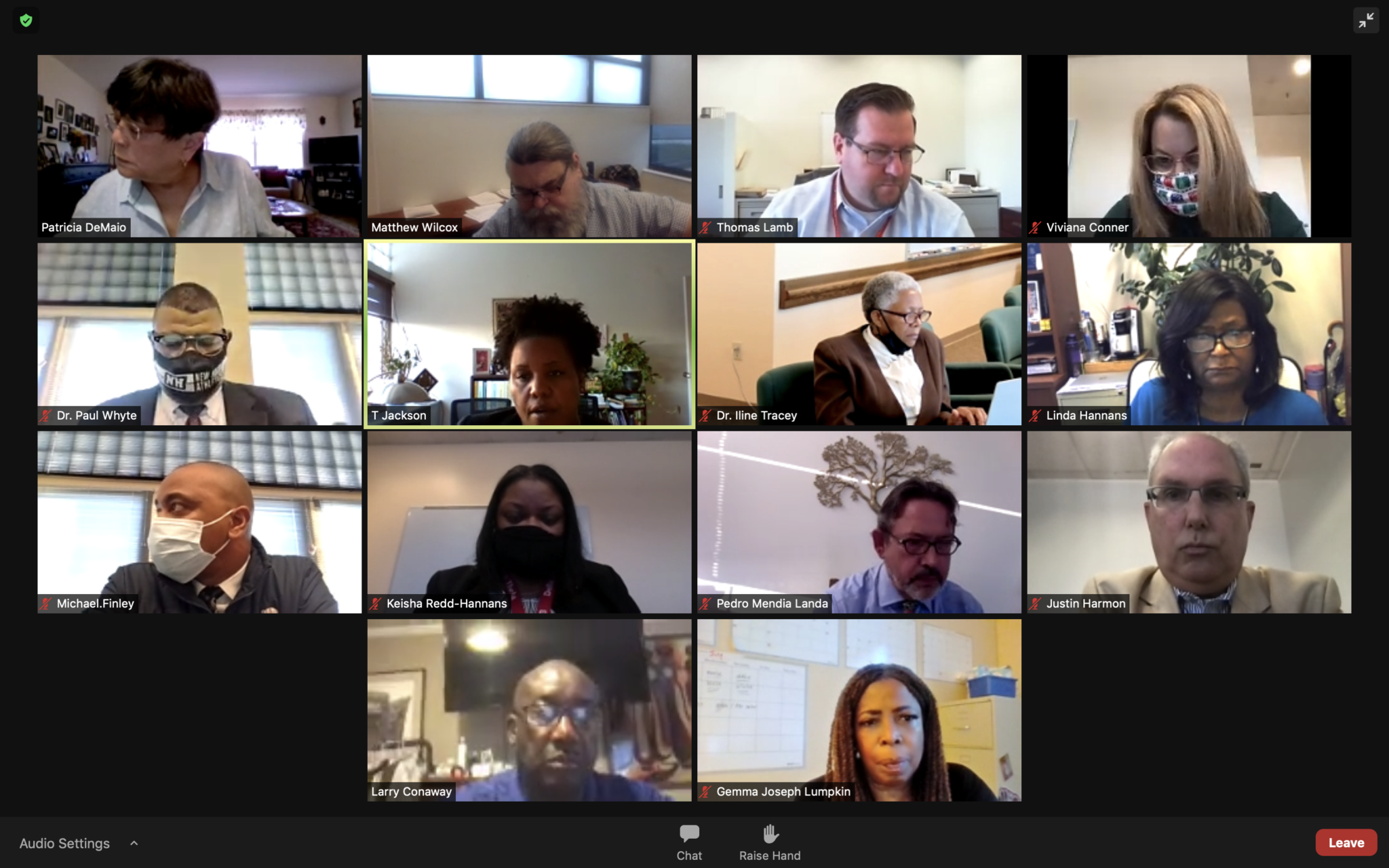NHPS’ Finance & Operations Committee discusses COVID-related budgetary issues
On Monday, New Haven Public Schools’ Finance & Operations Committee convened virtually to review fiscal updates, weigh budgetary concerns and feature committee projects.

Rachel Shin, Contributing Photographer
During a virtual meeting on Monday afternoon, the New Haven Public Schools’ Finance & Operations Committee met to discuss financial issues with the school lunch program, new custodial hires and a pilot program for a parent after-school initiative.
At the meeting, committee members discussed the financial implications of the pandemic for the school system. They highlighted the effects of COVID-19 on the Food Service Department, which filed a $1.7 million deficit. They also discussed future funding issues for their Eco-Urban custodial staff and a new MakeHaven pilot project aimed to teach parents how to sew.
“[2021] was a unique and rough fiscal year for Food Service,” acting City Budget Director Michael Gormany said. “The district had to do more learning during the beginning of the fiscal year and we really saw a decline in meal counts during that time period, even though we were very creative in doing curbside and other meal options.”
Gormany provided an overview of the Food Service Department’s 2021 fiscal year and the effect of the pandemic on its budget. The Food Service Department generates most of its revenue from the National School Lunch Program’s United States Department of Agriculture, or USDA, reimbursements, he explained. But since the pandemic limited NHPS’ ability to provide in-school meals, it resulted in a budget deficit for the year.
The department generated $7.2 million in revenue and had $9 million in expenditures, he said. The majority of its expenditures were in salary and benefits for food service workers and the cost of food, according to Gormany.
In order to offset the $1.7 million deficit, the Food Service Department received a contribution of almost $1.8 million from the Board of Education’s general fund, which balanced its budget for the 2021 fiscal year. The department had not needed to rely on the general fund for contributions for three straight years — 2017, 2018 and 2019 — as it had become self-sustaining with USDA reimbursements prior to the pandemic. Gormany tentatively projected a return to this self-sustaining budget in 2022, given the current trending of the meal count and new higher rate of reimbursement.
“Right now, based on what we’re seeing and where we’re trending, we are looking at balancing fiscal year ’22 without a general fund contribution,” Gormany said. “But, of course that’s subject to anything that may happen during the school year.”
Executive Director of Facilities Joseph Barbarotta then gave a quarterly status update on finances for Eco-Urban, the district’s contractor for custodial staff. In early 2021, NHPS hired an extra 24 part-time custodians for four hours each day using money from a COVID-19 grant. NHPS hired the additional staff to sanitize high touch areas in bathrooms three times a day, explained Barbarotta.
The staff also received a collective bargaining agreement that raised their hourly wage from $18.02 to $18.52. The employment of the 24 additional staff in conjunction with this wage increase will result in approximately $700,000 in additional costs this year, Barbarotta said. As the COVID-19 funding from last year will not roll over to 2022, this additional cost poses a problem for the committee, according to Barbarotta and committee member Larry Conaway.
“I’m concerned about this overage because things like this across the board will cause a deficit for the district … that spells doom at the end of the year, on June 30, 2022,” Conaway said.
Barbarotta echoed this sentiment, saying that the additional costs are not sustainable for the next fiscal year.
Their position is between the rock of budget constraints and the hard place of public health concerns, according to Chief Operating Officer of NHPS Thomas Lamb.
“We’re just not able to cover the expense of the additional hours,” Lamb said. “So we would need to either find additional funding through another source or cut back the hours … and do our best to keep up with the needs of the district. Neither one is a good solution. But they’re the only options that we have right now.”
The finance team hopes to meet soon to identify possible solutions and determine the next steps for the Eco-Urban issue, Lamb said.
The committee also highlighted a new pilot project with MakeHaven, an adult after-school program through which NHPS parents can learn how to sew. In the program, which currently instructs 30 to 40 families, participants create quilts, aprons, dresses and leggings, said Gemma Joseph Lumpkin, chief of Youth, Family and Community Engagement.
“We found that there’s a community of parents who are interested in sewing, quilting and making things and we wanted to connect with those families, build on their skills and build on their interest in entrepreneurship,” Joseph Lumpkin said.
NHPS currently holds the program at MakeHaven’s downtown location. The committee hopes to expand its capacity when parents are permitted back onto school sites, Joseph Lumpkin explained.
The grant that was discussed on Monday would offer sewing workshops for families at Fair Haven, Hill Central, Brennan Rogers and Wexler Grant schools from Nov. 9, 2021–May 31, 2022.
The NHPS Administration Offices are located at 54 Meadow Street.







